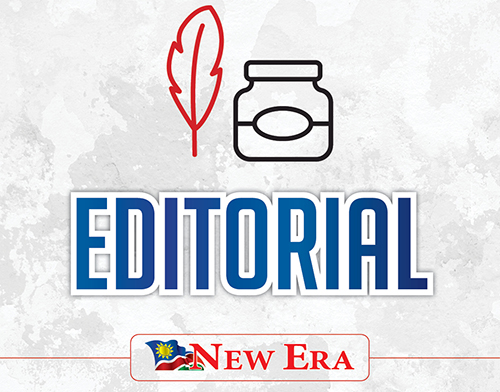Namibia is currently grappling with serious food insecurity, which the latest Integrated Food Security Phase classification report projects could throw over 1.26 million people further into abject poverty between now and March 2025; if left unresolved.
The same Integrated Food Security Phase Classification report also estimates that households are likely to exhaust all their food supplies from their own production as of this month [October 2024] and will possibly start resorting to adverse coping strategies such as selling assets to meet
their immediate food needs in the coming months.
The report is a tool for improving food security analysis and decision-making.
To mitigate this unfolding calamity, government has over the last couple of years been hard at work trying to uplift and empower poverty-stricken communities through numerous policy interventions at various levels, particularly through the rival of green schemes countrywide.
But the desired results have not been forthcoming at most of the country’s State-owned green schemes and that has negatively impacted Namibia’s silos.
In total, government owns about 11 major green schemes countrywide, which include Orange River, Hardap, Etunda, Musese, Sikondo, Uvungu-Vungu, Ndonga-Linena, Mashare, Shadikongoro, Kalimbeza, and Shitemo. Of those, eight were initially operated under the direct management of the now-beleaguered Agricultural Business Development Agency (Agribusdev), while three are leased out to private entities.
Agribusdev’s failure to successfully manage and run the green schemes was attributed to the high cost of production (electricity, inputs, wage bill, maintenance; etc) and lack of access to lucrative regional and continental markets.
Other issues attributed to the collapse of the country’s green schemes are the bureaucratic process of procuring farming inputs, the misplaced business plan of Agribusdev, green schemes being managed from Windhoek, small and medium scale farmers having to endure travelling long distances to sell their products and incessant under-funding from government as the main stakeholder.
As a result, most government’s green schemes currently remain dormant and unproductive, which has further thrown thousands of Namibians deeper into poverty and obscurity.
Despite the observed underfunding by government as the principal shareholder and failure by various key role-players such as Agribusdev, there remain ample untapped opportunities for Namibia to revive this highly promising sector that has the potential to address the thorny issue of food insecurity, create jobs and improve the general living conditions of our communities.
To achieve the desired results in terms of food security and socio-economic development, it is important for government to go back to the drawing board and come up with a comprehensive and progressive policy framework around state-owned green schemes, invest in modern agricultural technology and empower local farmers/producers/communities by including them in all decision-making processes, especially when setting up these schemes in their
areas.
As government continues with its efforts to resuscitate the dying green schemes countrywide, a clear and sustained method of how government will monitor and evaluate the progress and productivity of the green schemes should also be established.
It is important that the immediate, short-term and long-term impact and benefits of these schemes be tracked and evaluated in real time for government to make timely and informed decisions – rather than pumping millions into dying projects.
At operational level, there also seems to be a clear lack of skills and knowledge of modern and sustainable irrigation practices at most of these green schemes, and that is one area that must be addressed going forward – even if it means roping in foreign experts.
For all these and more to be realised, government should be ready to make unpopular decisions and fully explore partnerships with local and international private partners, who have demonstrated the capacity to productively and commercially operate such schemes.
Government should also be honest and bold enough to go ahead with its plans to lease out those green schemes that are practically, technologically and financially beyond their capacity to manage and operate.
The schemes can either be leased out for an agreed period or can be offered on a build, operate and transfer (BoT) basis, which will be beneficial to the government both in the short and long term.


